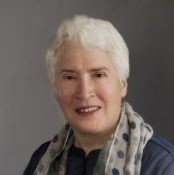
Parashat Vayeshev
♦
Parashat Vayeshev
Anne Morton
30 November 2018
Theme: “Joseph, sold as a slave”
At the beginning of this parashah Joseph appears to be no more than a bratty younger brother. His brothers hate him and cannot “speak a friendly word to him.” (37:4) This is not surprising. He brings “bad reports” of some of them to their father (37:2). When he recounts his dreams to his brothers and his father he seems unaware that the dreams might not sound as delightful to them as they apparently do to him. It is possible that he has not really understood his dreams—note that it is his brothers and his father who provide the interpretations—as a younger child he just enjoys the idea of lording it over his family. On the other hand, when his father tells him that he is going to send him to his brothers at Shechem, he does not sound like the dreamer who dreamed of his family bowing down to him. He responds with the instant obedience of a dutiful son: “I am ready.” (37:2)
We do not hear Joseph speak again until after he has been sold as a slave into Egypt and the wife of his master Potiphar orders him to have sex with her. She expects the response appropriate to a slave; that is, he will obey her, just as a child would obey a parent. Joseph, however, knows that the appropriate response is to refuse. It is not always right to obey a superior. His master has placed a great deal of trust in him and he should not abuse that trust. If he did, he would not only harm his master but would “sin before God.” (39:9) His loyalty is to his master and above all to God. This is the first time we hear him speak of God. Angered by his subsequent refusals, Potiphar’s wife falsely accuses him to her husband, who throws Joseph into prison. He says nothing in the face of this injustice, perhaps because he knows that as a slave and a foreigner his words will have no weight. Note that Potiphar’s wife twice calls Joseph “a Hebrew,” implying that as a foreigner he is likely to be sexually violent, an attitude towards immigrants and refugees that, sad to say, can still be found in our own time. (Leibowitz has an interesting discussion of this, “See, He Brought Us A Hebrew.”)
Now Joseph is not only an exile and a slave but a prisoner as well. And in prison he serves two other prisoners, officials of the king. One morning he notices that they seem upset and asks: “Why do you appear downcast today?” (40:7) When they reply that they have dreamed dreams and there is nobody to interpret them, he responds: “Surely God can interpret! Tell me.” (40:8) For the first time, Joseph shows himself sensitive to the feelings of others, even before they have said anything. He also has apparently learned to interpret dreams, that is, he now understands that it is God who makes the meaning of the dream known to the interpreter. Somehow Joseph has used his experience of ill treatment to become more responsive to his fellow human beings—and to God.
For Reflection and Discussion: [1] Have you ever disobeyed someone with authority over you and felt justified in doing so? Why? [2] How has the experience of adversity altered your relationship with others and with God?
Bibliography: Nehama Leibowitz, New Studies in Bereshit-Genesis (Jerusalem, n.d.), 417-421

Anne Morton, B.A., M.A., M.A. (Theology), Winnipeg MB, Canada, Bat Kol 2010
Email address: anmorton@mymts.net
PLEASE NOTE: The weekly Parashah commentaries represent the research and creative thought of their authors, and are meant to stimulate deeper thinking about the meaning of the Scriptures. While they draw upon the study methods and sources employed by the ISPS-Ratisbonne, the views and conclusions expressed in these commentaries are solely those of their authors, and do not necessarily represent the views of ISPS-Ratisbonne. The commentaries, along with all materials published on the ISPS-Ratisbonne website, are copyrighted by the writers, and are made available for personal and group study, and local church purposes. Permission needed for other purposes. Questions, comments and feedback are always welcome.
Share this with your friends
Institute Saint Pierre de Sion – Ratisbonne – Christian Center for Jewish Studies
Congregation of the Religious of Our Lady of Sion
Contact us:
secretary@ratisbonne.org.il
26 Shmuel Ha-Naguid Street – Jerusalem
Subscribe to Newsletter

No responses yet